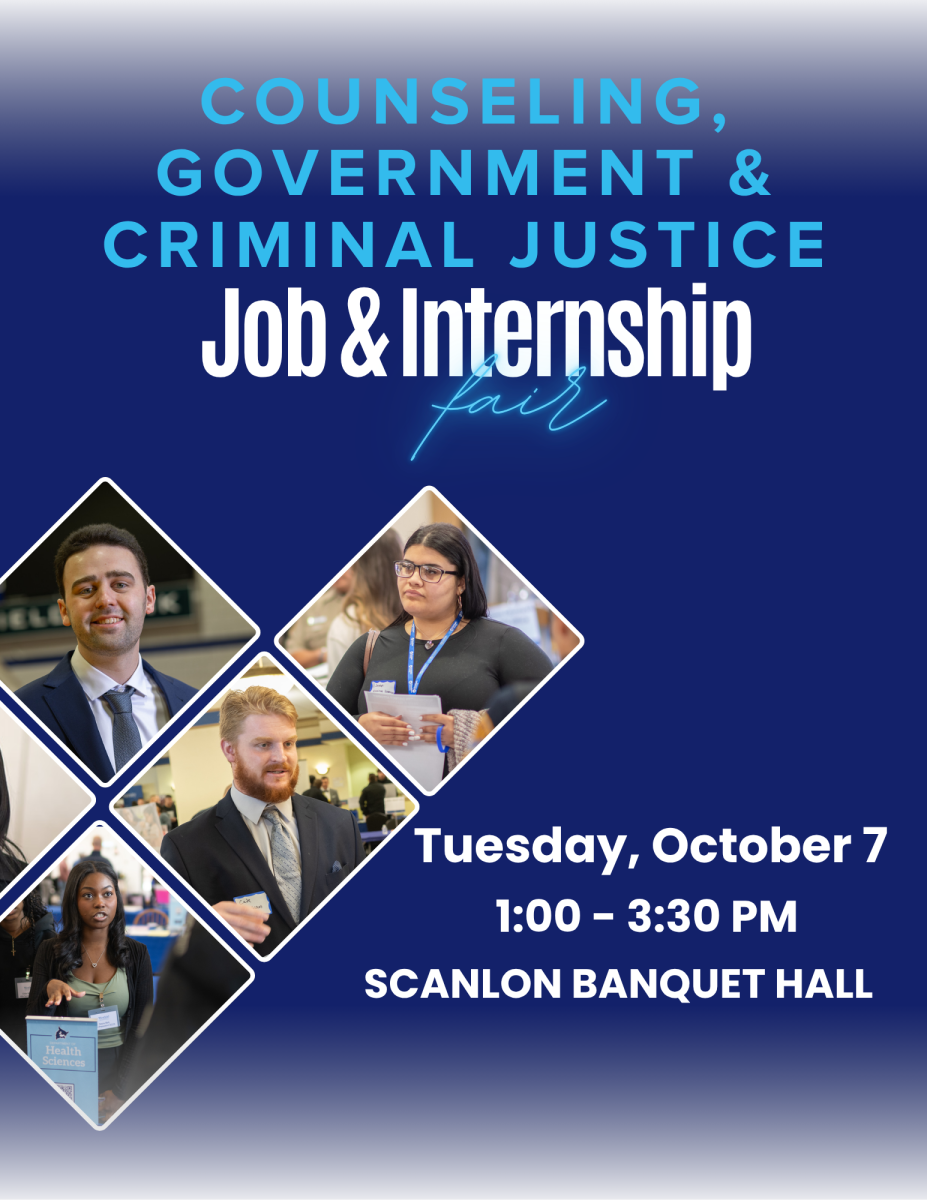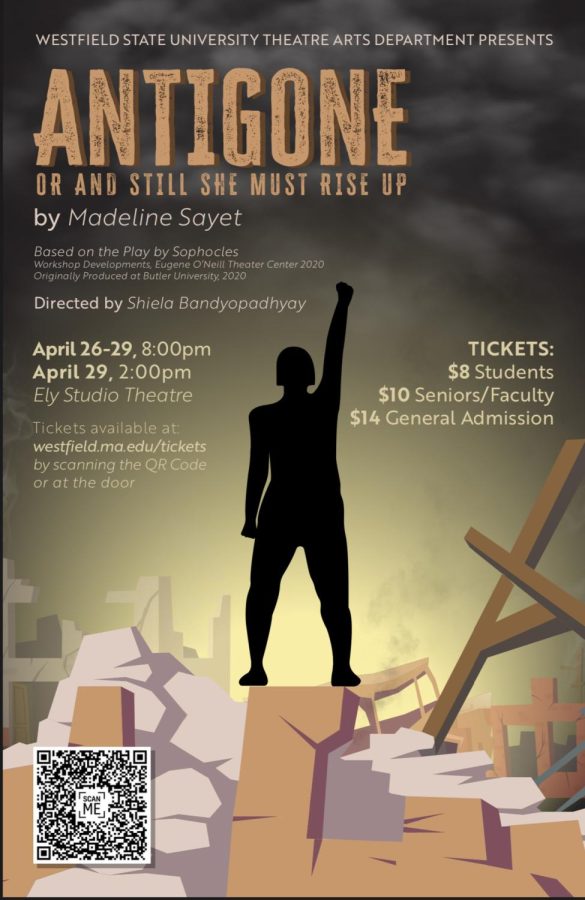Westfield State’s Theater Department presents a new retelling of “Antigone”
April 29, 2023
WESTFIELD – Westfield State University students will perform a contemporary retelling of Antigone this weekend at the Ely Center Blackbox theatre.
“Honestly, the play reads almost like a Facebook fight sometimes,” quipped James McNamara, the head of the Theatre Arts Department. “It’s arguments, thoughts, and comments we’re having right now,” he added.
The play covers important questions about moral integrity and governance during times of crisis. With the pandemic only recently over, audiences may identify with key plot points in the show. The classic Sophocles tragedy was readapted with modern themes at the height of the COVID-19 Pandemic by Madeline Sayat. While staying true to the story’s spirit, Sayat’s version, Antigone or and still she must rise up, has renewed meaning in a post-pandemic society.
“I never want to dictate to the audience how to feel. The message of the play is really clear – [Madeline] Sayat encodes a message,” said Sheila Bandyopadhyay, the incoming director of the show.
She expressed the subtext of how historically disenfranchised groups can take power through vigilance. “I hope people will be inspired to be involved,” she added.
“I’m really looking forward to bringing her story to a modern setting for a new audience,” said Madelyn Traynor, the actress playing Antigone’s lead role and namesake.
Westfield State University will be the third-ever institution to perform the show. “There have only been two other people- there was a workshop and another school,” Traynor said.
Traynor is a senior, and this spring will be her final role as an undergraduate student.
“It’s a bittersweet feeling,” she said. “To have my biggest role to date in my final semester is very rewarding. I’ve worked so hard my last four years to get to the point where I was ready to lead a show. I want to continue acting in the future,” she added.
For her post-graduate plans, Traynor aspires to become a writer and an actor in the film industry.
“Antigone has been one of my favorite plays since my freshman year of high school. It was the first green [Greek] tragedy I was introduced to. I read her in my class and just loved the strength of the character,” she said.
Bandyopadhyay discussed her creative freedom in the play and some ideas she might implement. Some of her preliminary ideas mentioned Thebes as a corporation instead of a city-state, drawing heavy inspiration from speculative fiction. The version of Antigone is set in a somewhat futuristic environment, and Bandyopadhyay said she was inspired by that aspect of the show: asking what the future could be like if we stay on the same path.
“It was written in 2020,” McNamara said, “so the whole idea of a plague – the conversations that are had in the play about what is moral and decent versus what is lawful made a lot of sense for this moment in time,” he added.
Initial emails for the casting call stated that this version of Antigone vastly changes the story’s plot, but McNamara clarified this misconception. “It’s a very faithful retelling of Antigone in an accessible and modern language,” he said.
When choosing the play, he explained that “it was a little bit of a ‘ta da’ moment.”
The committee selecting the department’s plays considers factors like the students involved, their skill level, and which shows were most recently produced.
“We hadn’t done anything classical since 2019 when we did Shakespeare’s ‘The Tempest’ or anything traditionally Greek since 2011,” McNamara said.
Bandyopadhyay, who has experience directing classical and Shakespearean works, was also attracted to the playwright’s distinctive use of Greek traditions.
“I’m really interested in the chorus aspect of Greek tragedy. That convention is very important because they focus the audience’s eye to the dramatic action,” she said.
“In this play, the chorus are also written as individuals. The way Madeline Sayat wrote those characters is unique,” she added.
Each source lauded Sayat’s ability to recontextualize an age-old classic. From the modernized setting to the subversion of expectation, “And still she must rise up” is depicted as thought-provoking and timely.
“I want to invite people to see the play,” Bandyopadhyay said, “which is a blend of contemporary lenses in classical theater. It was written and remains relevant as we just experienced a pandemic.”
The Theatre Arts Department is active every semester, performing shows such as “Marisol,” “Lucky Stiff,” and Andrew Lippa’s “The Wild Party.”


















